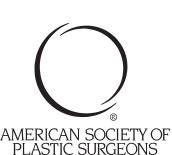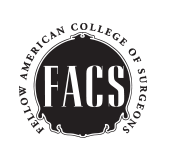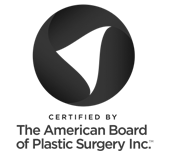Can I Breastfeed After Breast Surgery?
Posted February 04, 2019 in Breast Surgery
For many women, motherhood is one of life’s greatest experiences, and being able to breastfeed their baby is something many new mothers cherish. But can breast surgery affect this amazing ability? Women who have previously undergone breast surgery may find themselves facing some challenges if they decide to breastfeed after surgery—but rest assured, breastfeeding your baby is possible. While most women who decide to have breast surgery are typically done having children, the procedures offered by Dr. Taylor can boost the chances of being able to breastfeed after surgery.

Breastfeeding After Surgery: Common Issues
It is important to note that for some women, breastfeeding is difficult or even impossible, whether or not they have had surgery. However, undergoing breast surgery can make breastfeeding a little more difficult than it normally would be. Here are some of the most common issues women who breastfeed after surgery may face:
- Low milk supply
- Scar tissue affecting milk ducts or nerve tissues
- Increased risk of mastitis (a painful infection of breast tissue)
The risk of these issues occurring after breast surgery is typically small. There are several incisions and techniques that doctors, including Dr. Taylor, can use during breast surgery to help reduce the risks even further.
Breastfeeding After Surgery: Best Options
Dr. Taylor typically recommends that women wait until after they are done having children before they think about breast surgery. However, should you decide to have surgery before you are finished having children, there are options to help you have a successful breastfeeding experience. Below is a quick guide to some of the procedures Dr. Taylor offers, how they may affect breastfeeding, and which is the best option for new mothers.
Breast Augmentation
Dr. Taylor offers a variety of options for breast augmentation surgery. He will work with each patient to help them choose the size and shape of implants used, along with the location of the incisions. Submuscular (under the muscle) implant placement is preferred over a subglandular (over the muscle) placement, as implants placed under the muscle are less likely to affect breast tissue or milk ducts.
Studies have shown that there is no risk to infants from breast implants, even silicone implants, but the location of the incision can be key to the ability to breastfeed in the future. Dr. Taylor typically inserts implants through incisions in the breast crease or around the nipple. Incisions around or involving the nipple have the greatest risk of affecting milk production.
Breast Lift
During a breast lift, Dr. Taylor removes tissue from the breast and removes excess or loose skin to improve breast shape and firmness. Because this involves the removal of breast tissue, the ability to breastfeed could be more impacted than it would be by another procedure. Dr. Taylor does not typically recommend undergoing a breast lift before having children, but breast lifts are sometimes combined with other procedures, so it is important for expecting mothers to let their doctors know what procedures they have had before attempting to breastfeed.
Breast Reduction
Much the same as a breast lift, a breast reduction procedure involves the removal of tissue from the breast, which could negatively impact breastfeeding. Patients who plan on breastfeeding after surgery should be aware of the risks and may need support to breastfeed successfully.

Most women who choose to have breast surgery end up loving their results so much that they wonder why they waited so long. Over 300,000 women undergo some type of breast augmentation surgery in the United States every year, and the number is only growing with time. Doctors all over the country, including Dr. Taylor, are constantly improving their techniques to ensure every woman gets the results she desires. Breastfeeding after breast surgery may come with some challenges, but there is no reason to believe it isn’t possible—and the procedures offered by Dr. Taylor will help boost those chances when the time comes.
Call our office at (626) 314-6476 or fill out our online contact form to schedule a consultation soon to see what options are right for you.



